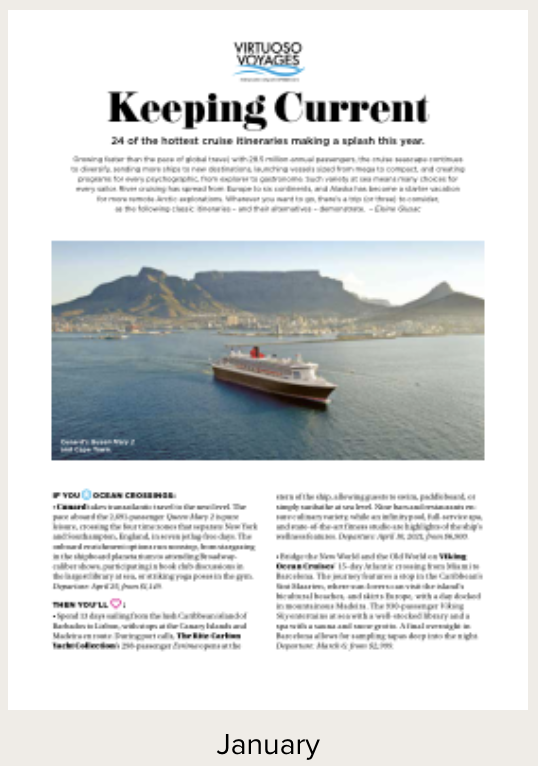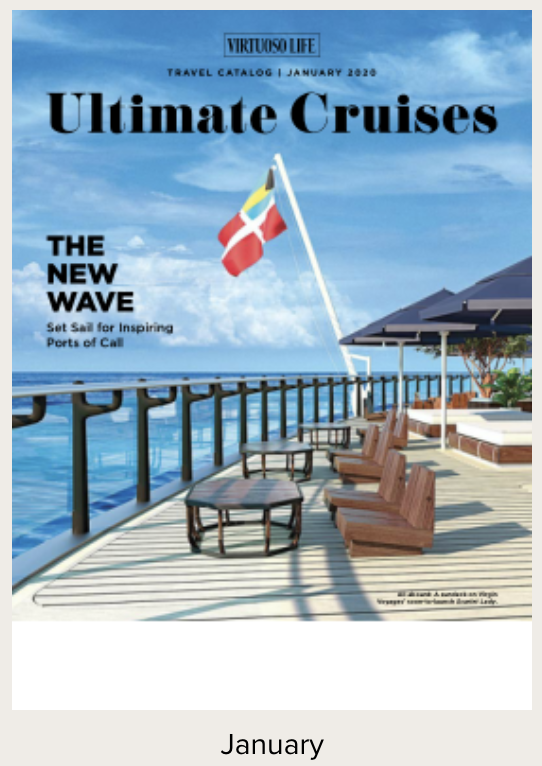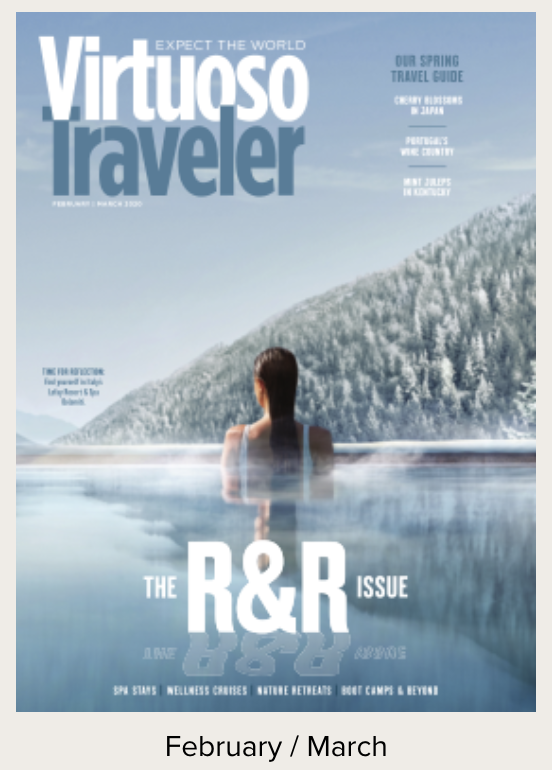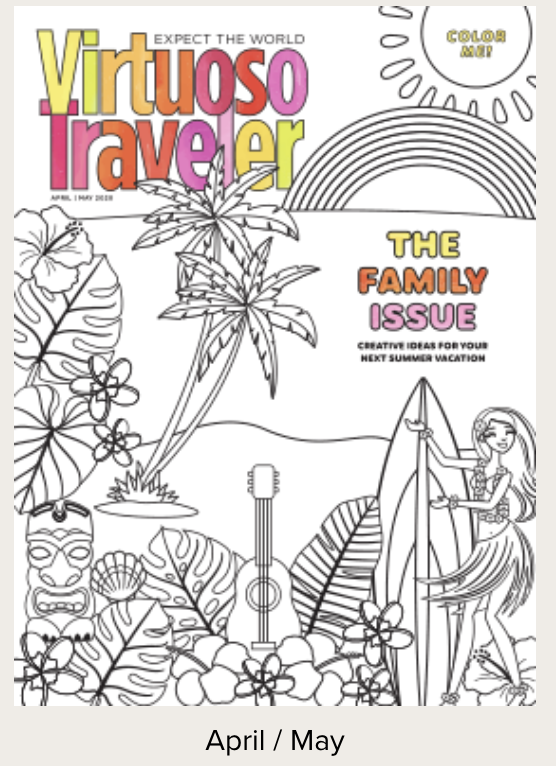Click below to view Publications
Luggage Delivery
Whether sending golf clubs to St. Andrews, or luggage to a Mediterranean cruise, or even your child’s luggage to Summer Camp or College, Luggage Forward is sure to make your trip easier and more enjoyable. Luggage Forward is a door-to-door luggage delivery service that eases the hassle of travel. Click the button to see more.
Wireless Traveler
Stay reliably connected abroad on your next trip! Low cost calling, texting and data when you travel abroad.
Travel Tips
The Transportation Security Administration, a division of the U.S. Department of Homeland Security, establishes air travel laws and regulations. Many of these laws and regulations developed after the September 11, 2001, attacks to provide extra security to air travelers, and have spawned similar air safety laws in other countries. Travelers must adhere to air travel laws and regulations to pass through airport security.
Liquids
The TSA has established air travel laws and regulations pertaining to liquids. The 3-1-1 rule for carry-on bags indicates that each traveler may carry on bottles less than 3.4 oz. as long as these containers fit in one quart-sized, clear, plastic, zipper-lock bag. Exceptions to the 3-1-1 rule include items such as medication, baby food and formula, and breast milk. People carrying these items must inform security officers before passing through security.
Clothing
Air travelers should dress lightly and, if possible, wear sandals or slip-on shoes, as all travelers must remove their shoes for inspection. Travelers should avoid clothing with pockets, as they must place all contents, including loose change, cell phones and keys, into bowls for screening. Heavy jewelry like earrings, bracelets and rings may set off metal detectors. Agents will ask travelers with body piercings to remove their jewelry for further inspection. Belts, hair ornaments, bra wiring and even metal buttons can set off alarms, so travelers should avoid wearing these items, if possible. Travelers can wear head coverings and religious clothing. However, if these items look large enough to hide prohibited items, security officials may require additional screening.
Other
To make air travel as efficient as possible, people must arrive on time. According to air travel laws and regulations, travelers aren't permitted to board if they arrive 30 minutes or less before the scheduled departure time. Travelers must have a boarding pass and government-issued photo identification, such as a driver’s license, to provide to security officers. Parents traveling with babies or small children should remove them from strollers and car seats for faster security clearance. Pets, too, will have to be removed from their carriers.
Travelers should watch their behavior and speech, as any actions or words perceived as threats could lead to delays or missed flights. People with pacemakers, surgical pins or other metal items inside their bodies should inform airline security of this, before passing through metal detectors. Bringing a doctor’s notification will alleviate boarding difficulties.
Packing Tips
Long lines for check-in and security, checked baggage fees and cramped seating are among the realities of air travel for many passengers. Much of the aggravation associated with air travel is unavoidable. However, with proper packing, it is possible to reduce or eliminate baggage fees and ensure that your luggage arrives along with you at your destination and upon your return.
Getting Through Security
Many air passengers are familiar with what the Transportation Security Administration (TSA) calls the "3-1-1 Rule" concerning liquids in carry-on luggage: containers of 3 oz. or less should be contained in a 1-quart clear zip-top plastic bag, with a single plastic bag per passenger. Pack liquids in carry-on baggage in an easily accessible location to make it easy to remove them for inspection.
Be prepared to remove your laptop from its bag for screening. Laptop sleeves, "butterfly" or tri-fold styles that allow the laptop to lie flat on the conveyor belt are most likely to allow the screening device to take a clear picture of the internal components of the laptop, which means the laptop need not be removed from the bag for screening.
Ask for manual inspection of undeveloped film to avoid possible damage from X-ray exposure. TSA also reserves the right to conduct random searches of carry-on luggage. Pack underwear and lingerie in mesh bags to avoid having them touched in case your bag is selected for inspection.
Carry-On
To get through airport security faster, air travel laws and regulations state that travelers should pack carry-on bags in a neat and organized manner. Instead of haphazardly tossing items in a bag, the TSA advises that travelers pack one layer of clothing, place small electronics on top, then add another layer of clothing, and put heavier items on top of that layer. This makes it easier for X-ray machines to see the contents of bags. Don't pack laptops, video games, portable DVD players and video cameras, as agents scan them individually.
Travelers must not pack sharp items such as nail files and pocketknives or pepper spray, as agents will confiscate these items at the check-in area. Neither should they wrap gifts they plan to carry onto the airplane. The TSA advises that travelers unsure about any items should play it safe and leave the items at home.
Wardrobe and Packing Tips
When packing for air travel, less is more. Coordinate your travel wardrobe with mix-and-match pieces in neutral colors that can be dressed up or down. Be prepared to rinse out clothing or do a load of laundry during longer trips. Wear your heaviest shoes and overcoat onto the plane if possible. Place packed shoes in a plastic bag near the bottom of the bag that you plan to carry by hand or near the wheels of a rolling bag. Roll clothing rather than fold it to avoid packing creases. Do not overpack, which tends to smash clothing, or underpack, which allows clothing to shift inside the bag.
Minimizing Luggage Fees and Loss
Place a label or card that states your name and contact information inside each checked bag to make it possible to identify your bag if the luggage tag becomes detached. Use an email address or a post office if you have safety concerns. If you elect to lock your checked baggage, use only TSA-approved locks.
For domestic trips, the cost of package shipping services such as UPS, FedEx or DHL can be comparable to checked baggage fees; this may be an alternative for you with advance planning. Specialty baggage shipping services can handle international travel plans, including any customs issues. Specialty baggage shipping services also guarantee on-time delivery of your luggage.
Shipping baggage offers several advantages over checking it. Your baggage is insured against loss or damage for the full value of its contents, which is not the case with checked baggage. By arriving at your destination airport baggage-free, you save the wait at the baggage claim. In many areas, you also have the option of taking less expensive public transportation from the airport to your hotel, which may help offset the cost of shipping your bags.
Be Prepared Travel Tips
Before you depart on your trip, you can take some steps to minimize your loss in case of theft.
Make photocopies of key documents — your passport, rail pass, car-rental voucher, itinerary, prescriptions (for eyewear and/or medicine), and more — to bring along. For a backup, leave a copy with loved ones, too, in case you lose your copy and need to have one faxed to you. You could also bring a couple of extra passport pictures. Also, you can email yourself photos of the copies as you will most likely have access to email at your hotel or resort.
If you have expensive electronics (camera, tablet, smartphone, etc.), consider getting theft insurance and travel insurance. Take a picture of your pricey gear and store the picture at home, in case it’ll help you settle an insurance claim. As you travel, back up your digital photos and other files frequently to a photo sharing website.
Leave your fancy bling at home. Luxurious luggage lures thieves. The thief chooses the most impressive suitcase in the pile so simple black luggage is ideal.

































